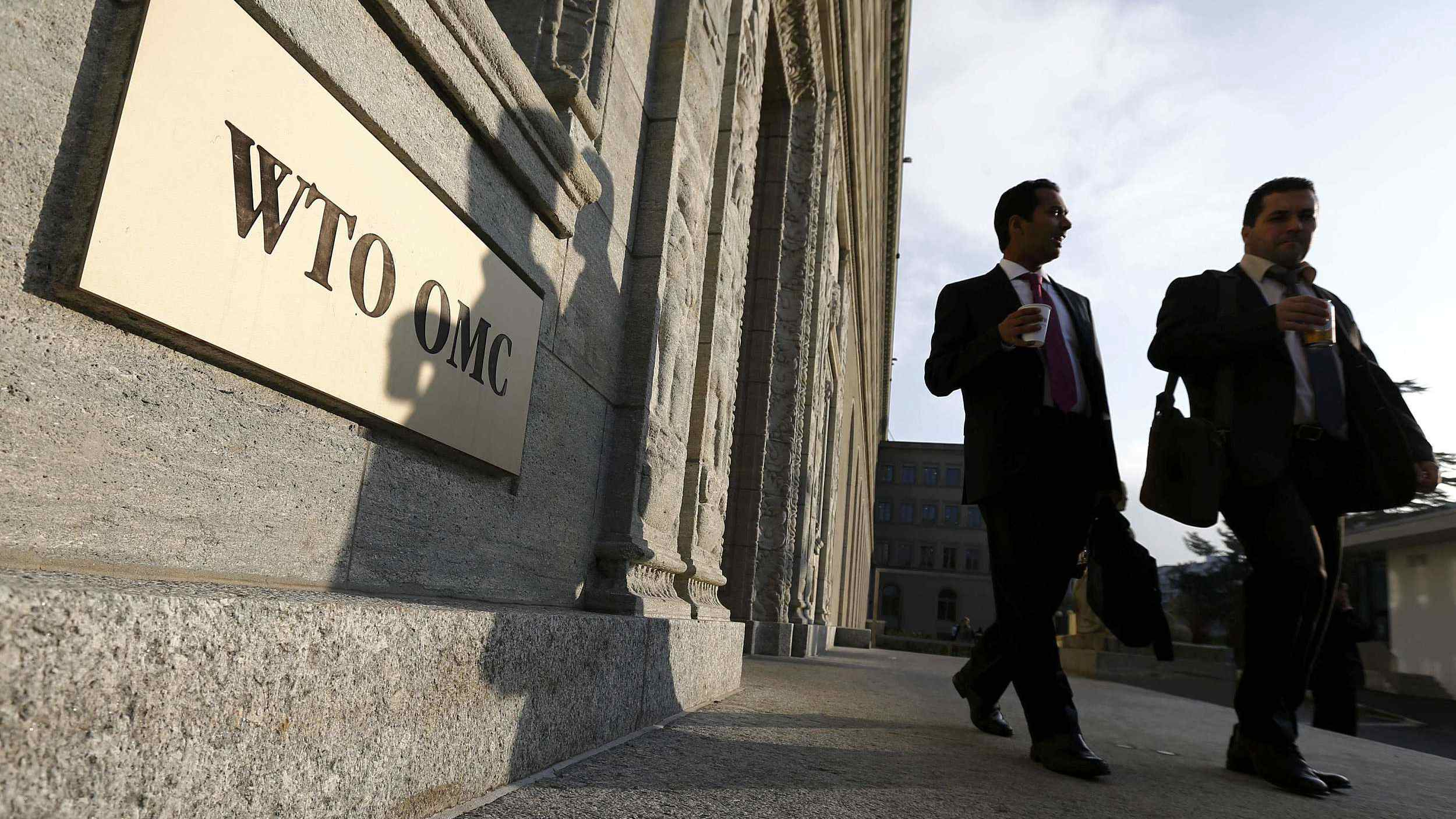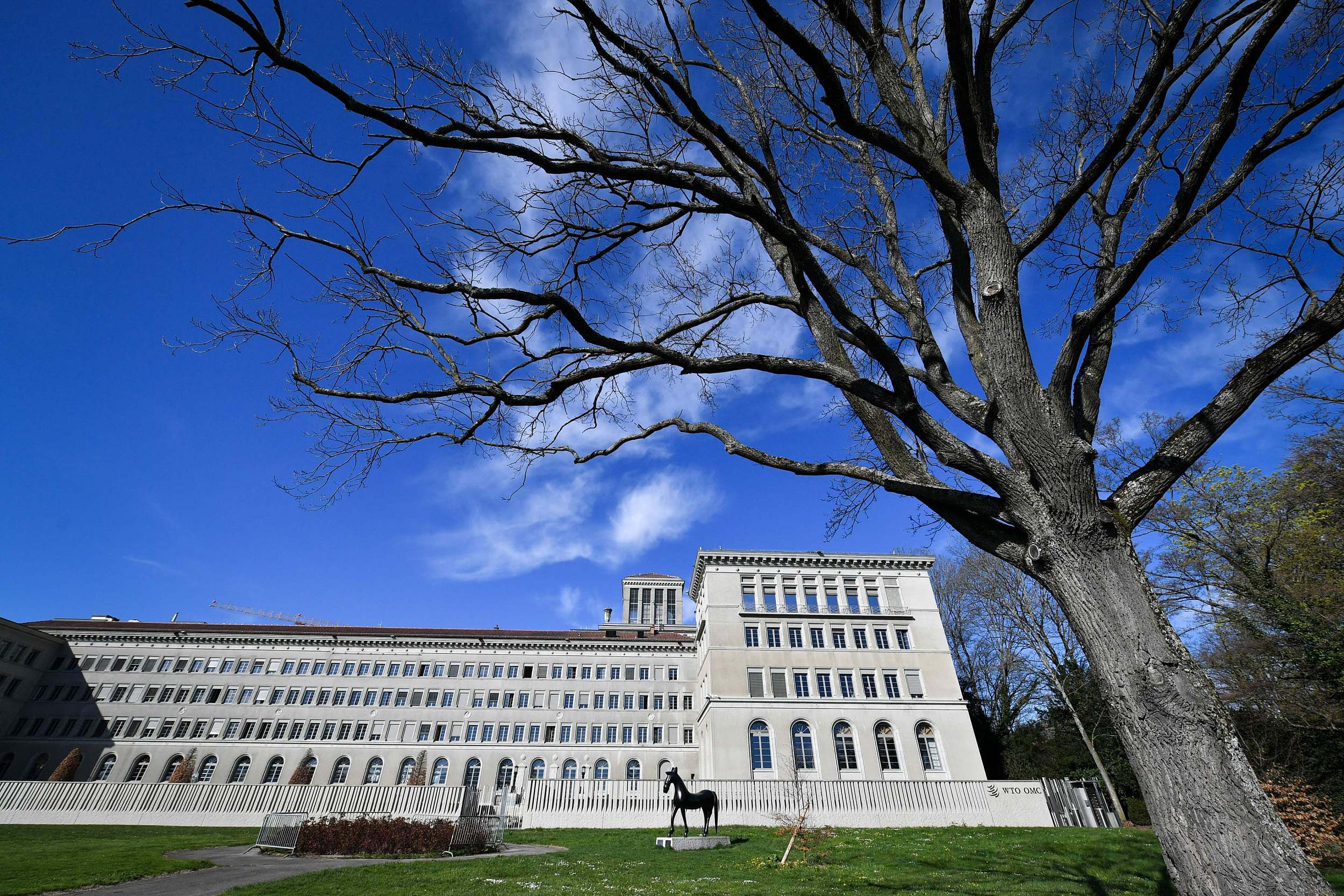
Business
16:33, 23-Jun-2018
US unveils new veto threat against WTO rulings
CGTN

The United States ramped up its challenge to the global trading system on Friday, telling the World Trade Organization that appeals rulings in trade disputes could be vetoed if they took longer than the allowed 90 days.
The statement by US Ambassador Dennis Shea threatened to erode a key element of trade enforcement at the 23-year-old WTO: binding dispute settlement, which is widely seen as a major bulwark against protectionism.
It came as US President Donald Trump, who has railed against the WTO judges in the past, threatened to levy a 20 percent import tax on European Union cars, the latest in an unprecedented campaign of threats and tariffs to punish US trading partners.
Shea told the WTO’s dispute settlement body that rulings by the WTO’s Appellate Body, effectively the supreme court of world trade, were invalid if they took too long. Rulings would no longer be governed by “reverse consensus”, whereby they are blocked only if all WTO members oppose them.
“The consequence of the Appellate Body choosing to breach (WTO dispute) rules and issue a report after the 90-day deadline would be that this report no longer qualifies as an Appellate Body report for purposes of the exceptional negative consensus adoption procedure,” Shea said, according to a copy of his remarks provided to Reuters.
An official who attended the meeting said other WTO members agreed that the Appellate Body should stick to the rules, but none supported Shea’s view that late rulings could be vetoed, and many expressed concern about his remarks.

The World Trade Organization (WTO) headquarters are seen in Geneva on April 12, 2018. /CGTN Photo
The World Trade Organization (WTO) headquarters are seen in Geneva on April 12, 2018. /CGTN Photo
Rulings are routinely late because, the WTO says, disputes are abundant and complex. Things have slowed further because Trump is blocking new judicial appointments, increasing the remaining judges’ already bulging workload.
At Friday’s meeting the United States maintained its opposition to the appointment of judges, effectively signaling a veto of one judge hoping for reappointment to the seven-seat bench in September.
Without him, the Appellate Body will only have three judges, the minimum required for every dispute, putting the system at severe risk of breakdown if any of the three judges cannot work on a case for legal or other reasons.
“Left unaddressed, these challenges can cripple, paralyze, or even extinguish the system,” chief judge Ujal Singh Bhatia said.
Sixty-six WTO member states are backing a petition that asks the United States to allow appointments to go ahead. On Friday, US ally Japan endorsed the petition for the first time, meaning that all the major users of the dispute system were united in opposition to Trump.
Source(s): Reuters

SITEMAP
Copyright © 2018 CGTN. Beijing ICP prepared NO.16065310-3
Copyright © 2018 CGTN. Beijing ICP prepared NO.16065310-3